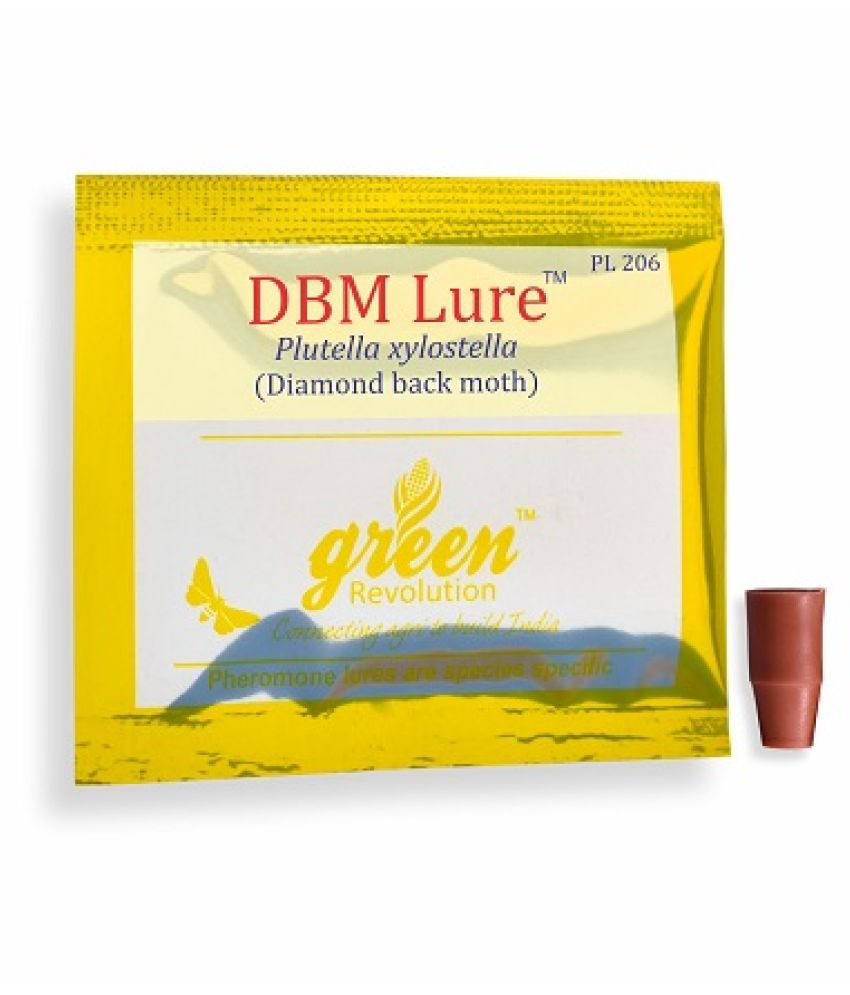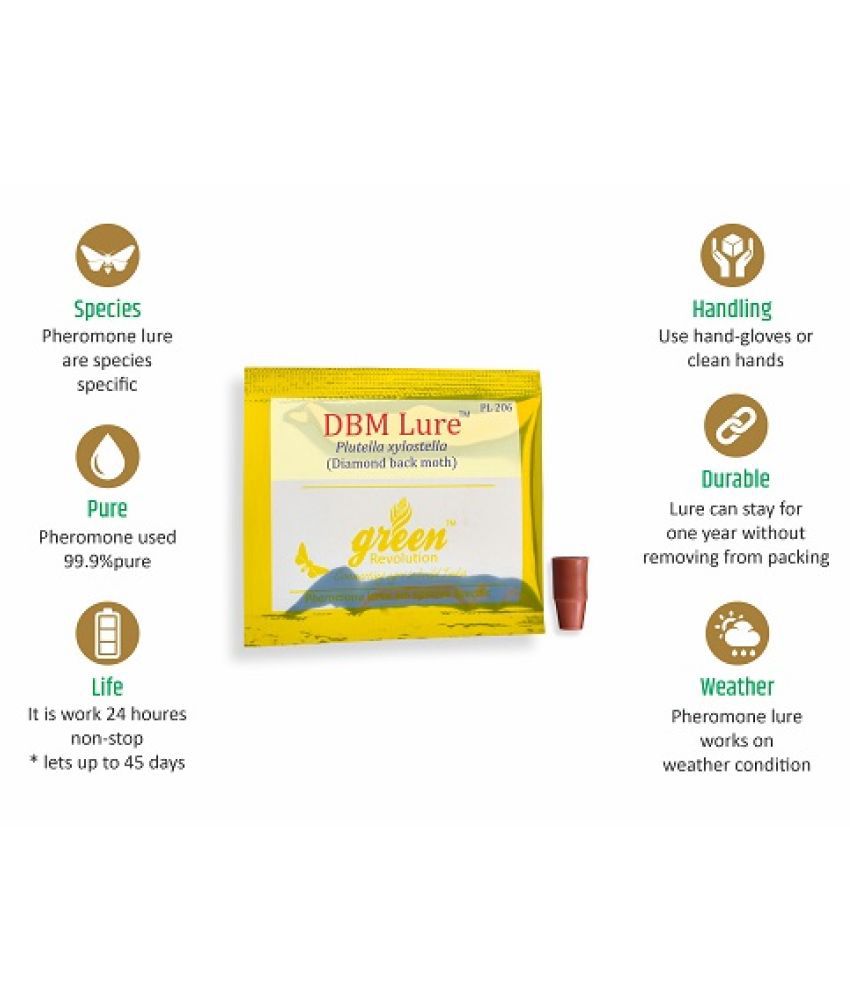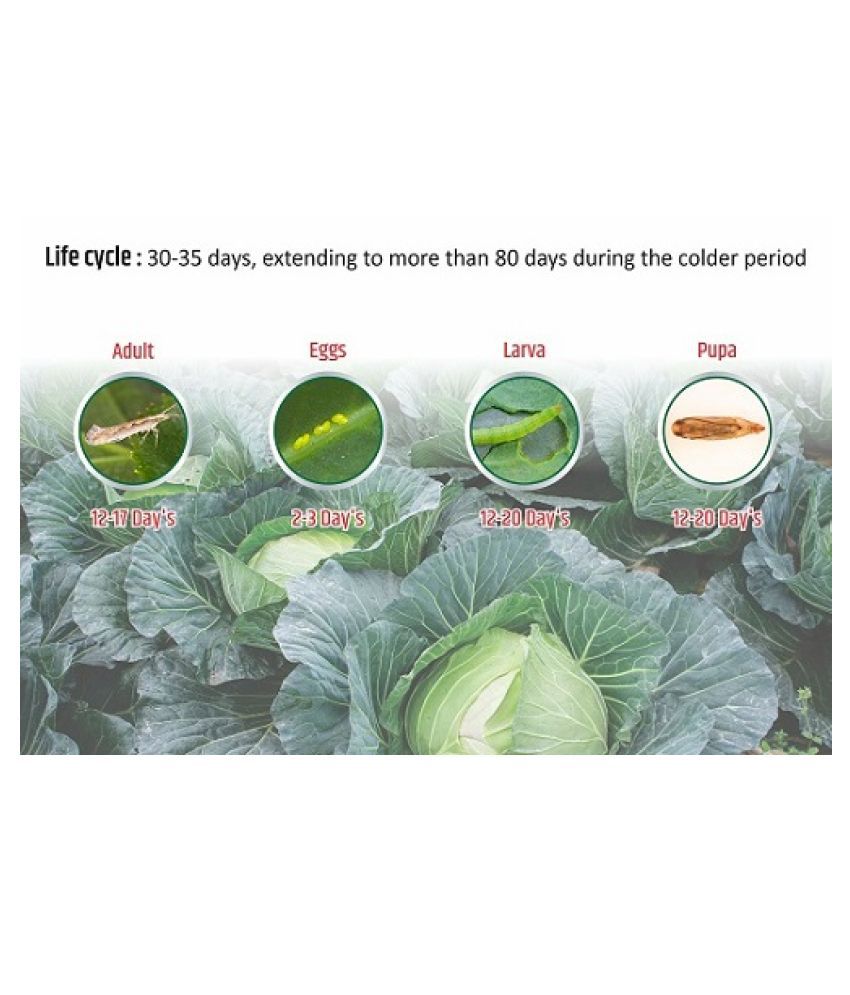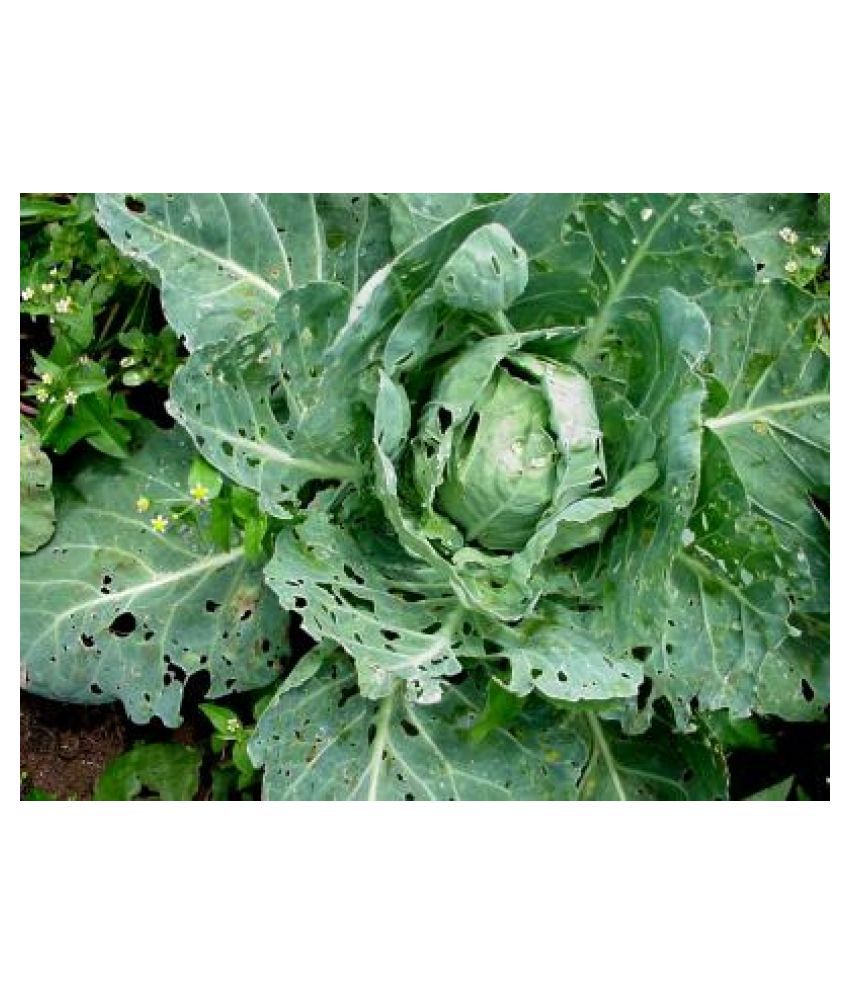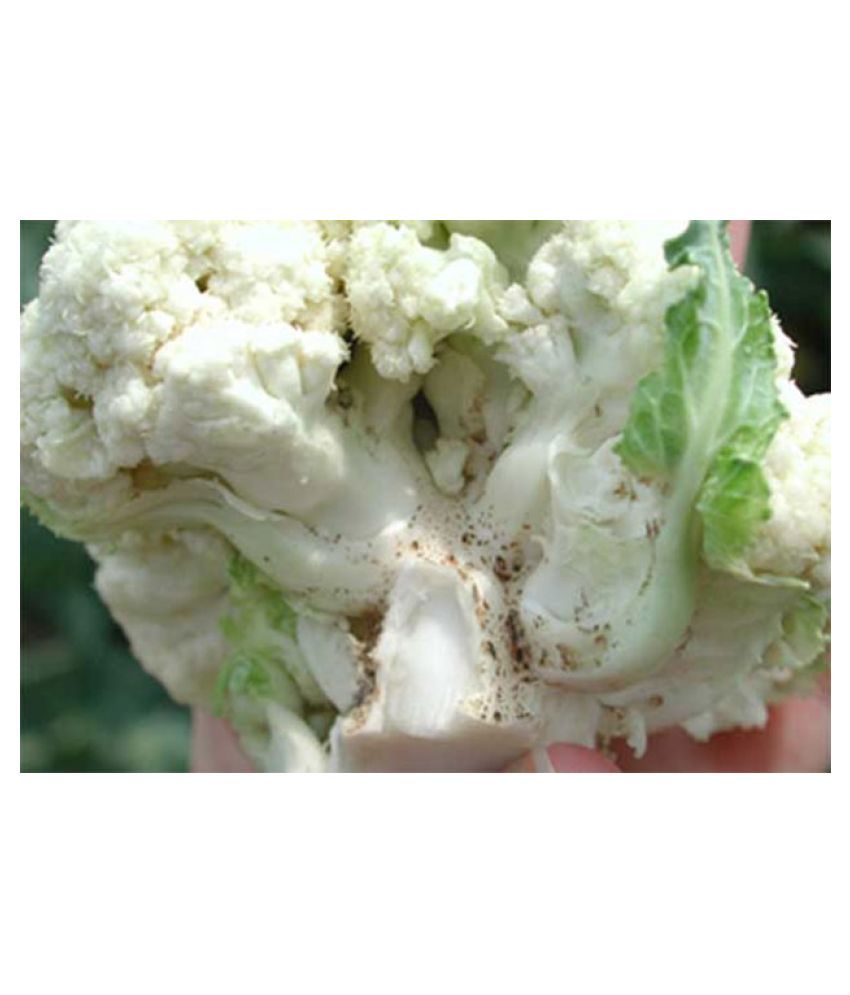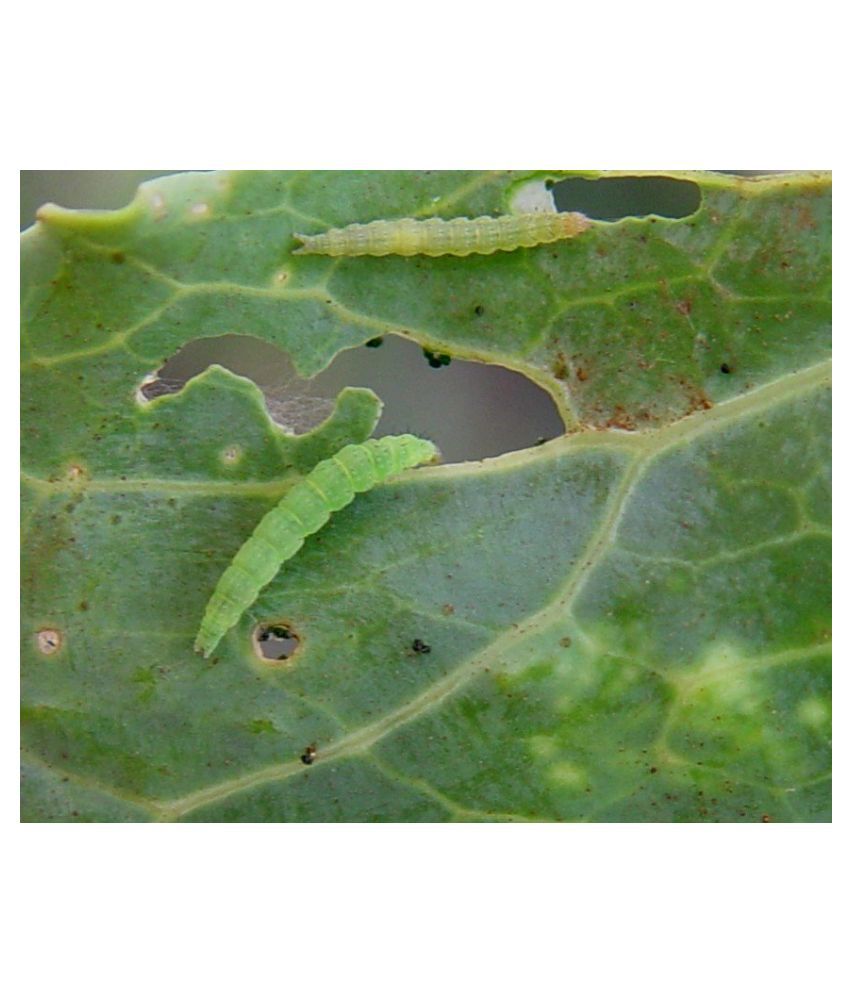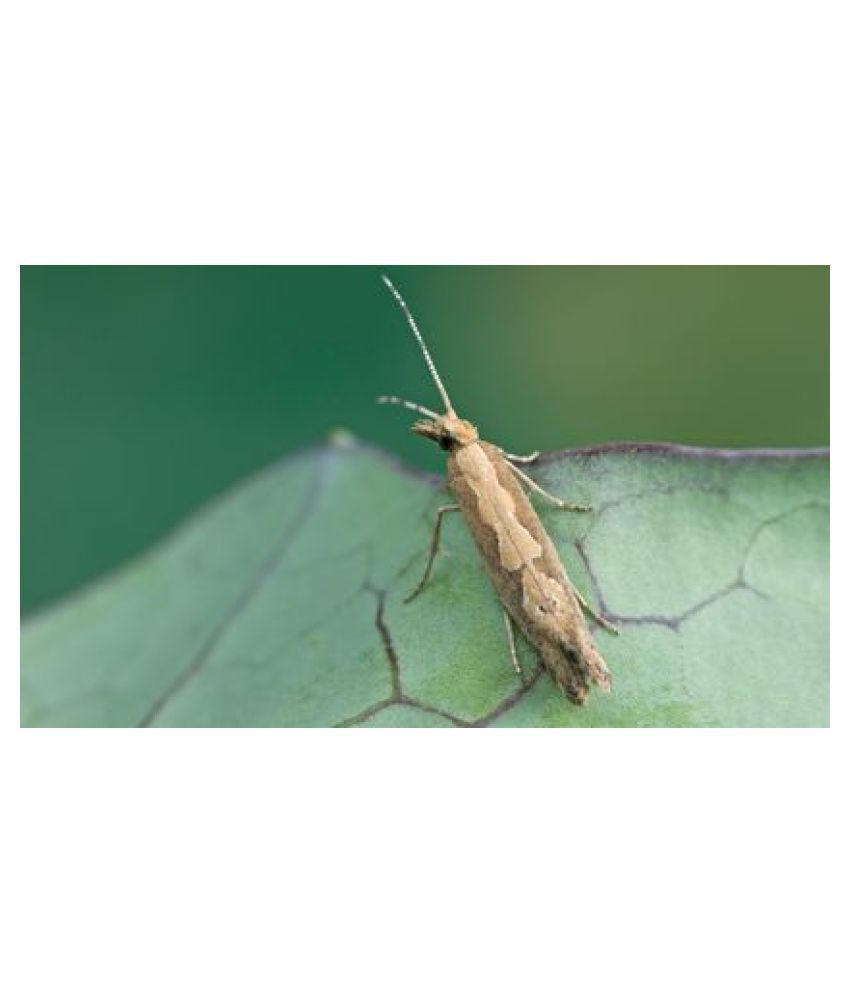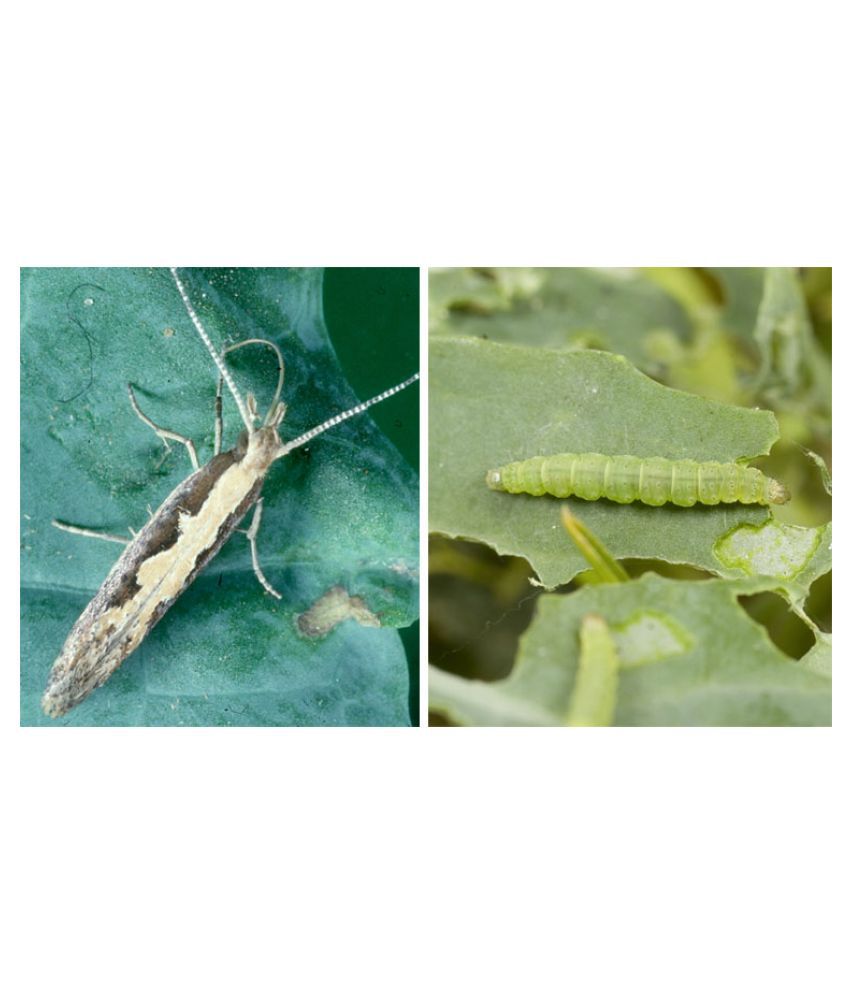Host crop: Cabbage, Cauliflower, Chinese cabbage, etc.
This small moth is colored gray and brown. It can potentially be identified by a cream-colored band that may be present in the shape of a diamond on its back. The diamondback moth has a wingspan of about 15 mm and a body length of 6 mm. The forewings are narrow, brownish-gray, and lighter along the anterior margin, with fine, dark speckles. A creamy-colored stripe with a wavy edge on the posterior margin is sometimes constricted to form one or more light-colored diamond shapes, which is the basis for the common name of this moth. The hind wings are narrow, pointed toward the apex, and light gray, with a wide fringe. The tips of the wings can be seen to turn upward slightly when viewed from the side.
Damage:
Plant damage is caused by larval feeding. Although the larvae are very small, they can be quite numerous, resulting in complete removal of foliar tissue except for the leaf veins. This is particularly damaging to seedlings and may disrupt head formation in cabbage and cauliflower.
Life Cycle:
Diamondback moth has four life stages: egg, larva, pupa, and adult. Crop damage is caused by the larval stage. Normally, the diamondback moth takes about 32 days to develop from egg to adult. The adult moth is approximately 8 to 9 mm (1/3 inch) long with a wingspan of 12 to 15 mm (½ inch). Adult females lay an average of 160 eggs during their life span of about 16 days. Eggs are oval, yellowish-white, and tiny. They are glued to the upper and lower leaf surfaces singly or in groups of two or three. Eggs hatch in about five or six days. Immediately after hatching from the egg, larvae burrow into the leaf and begin mining the leaf tissue internally. After feeding within the leaf for about a week, the larvae exit from the underside of the leaf and begin feeding externally. during the larval stage which lasts about ten to 21 days, depending upon temperature and the availability of food. At maturity, the larvae are about 12 mm (½ inch) long. the pupae are light green but as they mature, they become brown as the adult moth becomes visible through the cocoon. The pupal stage lasts from five to 15 days, depending on environmental conditions.
Technology:
Insect Sex Pheromone Technology: It is the process of attraction, and trapping the insect those damages to crops.
Per Acre Use: Sticky trap with DBM lure at 10/acre for controlling.
Benefits:
Economically Affordable, easy to install and manage.
If used properly can detect low numbers of insects.
Non-toxic.
It can be used all season long.
Reduce the use of harmful pesticides and do organic farming and save a life.
Features:
Pheromone used 99% pure.
100% Effective from other commercial products.
Lure working day in-field life 45day, Depend on weather conditions.
Dispenser - Silicon rubber Septa
The lure can stay for one year without removing from packing.
Precaution: Please use hand gloves / keep clean hand for handling lure

